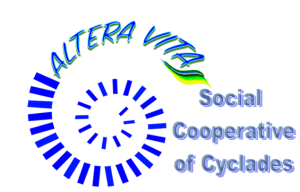Online Dangers
 The internet, while a vast source of knowledge and connection, also harbors numerous dangers. From cyberbullying and online scams to identity theft and exposure to inappropriate content, navigating the digital world requires caution. Social media platforms can become breeding grounds for misinformation and exploitation, with individuals vulnerable to manipulation and predatory behavior. Moreover, the anonymity provided by the internet can embolden individuals to engage in harmful activities, such as cyberstalking or spreading hate speech. Vigilance, education, and responsible use are essential in mitigating these online dangers, ensuring a safer and more secure digital experience for all users.
The internet, while a vast source of knowledge and connection, also harbors numerous dangers. From cyberbullying and online scams to identity theft and exposure to inappropriate content, navigating the digital world requires caution. Social media platforms can become breeding grounds for misinformation and exploitation, with individuals vulnerable to manipulation and predatory behavior. Moreover, the anonymity provided by the internet can embolden individuals to engage in harmful activities, such as cyberstalking or spreading hate speech. Vigilance, education, and responsible use are essential in mitigating these online dangers, ensuring a safer and more secure digital experience for all users.

-
Awareness Objective: The primary objective of this section is to increase participants' awareness of the various online dangers prevalent in today's digital landscape. This includes educating you about cyberbullying, online scams, identity theft, phishing, malware, and other potential risks you may encounter while using the internet.
-
Risk Mitigation Objective: This section will equip participants with the knowledge and tools necessary to mitigate the risks associated with online dangers. This involves teaching you strategies for protecting your personal information, recognizing and avoiding potential threats, and implementing security measures to safeguard your online presence effectively.
-
Empowerment Objective: Beyond awareness and risk mitigation, this section aims to empower participants to take proactive steps in promoting online safety for themselves and others. This will involve teaching you how to report instances of cyberbullying or suspicious online activities, advocating for responsible digital citizenship, and promoting a culture of online respect and accountability. Ultimately, the goal is to empower you to navigate the digital world confidently and responsibly while minimizing your exposure to online dangers.
Competencies you are developing:
- Cybersecurity Awareness: Developing competency in recognizing and understanding various online dangers, including cyberbullying, phishing, malware, and identity theft. Participants will learn to identify potential threats and understand the importance of cybersecurity measures in safeguarding personal and sensitive information online.
- Risk Assessment and Management: Building competency in assessing risks associated with different online activities and platforms. Participants will learn to evaluate the potential consequences of their online behavior and make informed decisions to mitigate risks effectively. This includes understanding privacy settings, verifying the authenticity of websites, and employing safe browsing practices.
- Digital Literacy and Critical Thinking: Enhancing competency in digital literacy skills and critical thinking abilities to navigate the online world responsibly. Participants will learn to critically evaluate online content, discern credible sources from misinformation, and recognize manipulation tactics used by malicious actors. This competency empowers individuals to make informed choices and avoid falling victim to online scams or manipulation.

Think for a moment...
- Have you ever encountered suspicious or malicious content while browsing the internet or using social media? How did you handle the situation?
- Can you describe any instances where you, or someone you know, fell victim to online scams or phishing attempts? What were the consequences, and how did you, or they, respond?
- How do you protect your personal information and online accounts from potential threats like identity theft or hacking? Have you ever experienced a breach of your online privacy or security?
